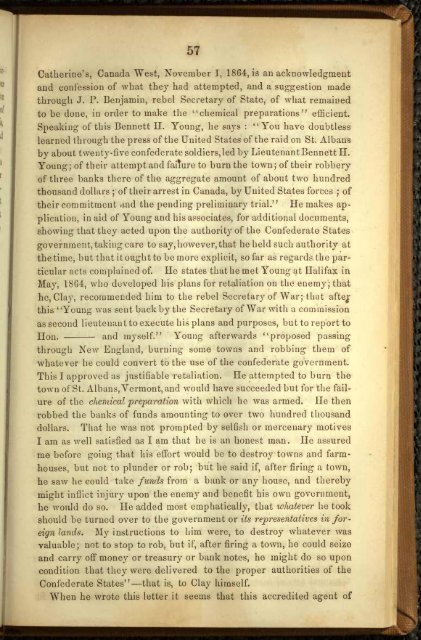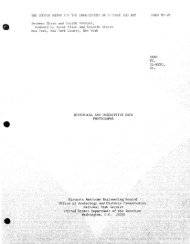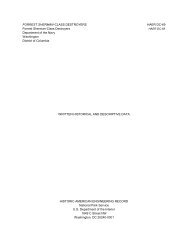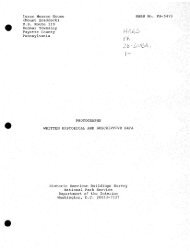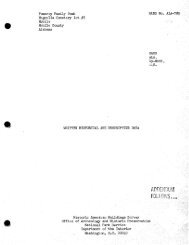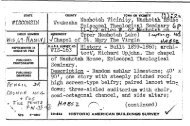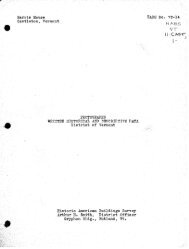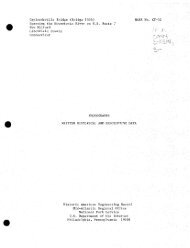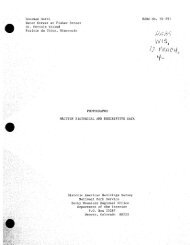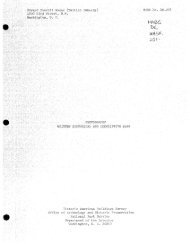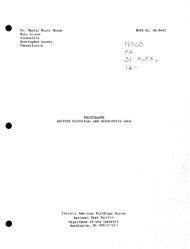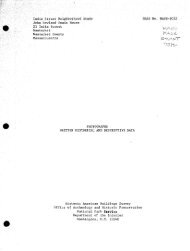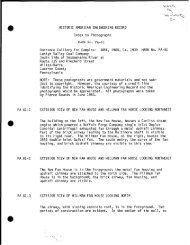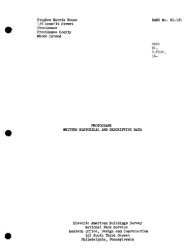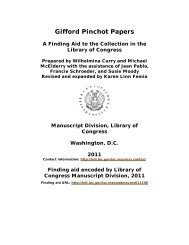Abraham Lincoln - American Memory
Abraham Lincoln - American Memory
Abraham Lincoln - American Memory
You also want an ePaper? Increase the reach of your titles
YUMPU automatically turns print PDFs into web optimized ePapers that Google loves.
57<br />
Catherine's, Canada West, November 1, 1864, is an acknowledgment<br />
and confession of what they had attempted, and a suggestion made<br />
through J. P. Benjamin, rebel Secretary of State, of what remained<br />
to be done, in order to make the "chemical preparations" efficient.<br />
Speaking of this Bennett II. Young, he says : "You have doubtless<br />
learned through the press of the United States of the raid on St. Albans<br />
by about twenty-five confederate soldiers, led by Lieutenant Bennett H.<br />
Young; of their attempt and failure to burn the town; of their robbery<br />
of three banks there of the aggregate amount of about two hundred<br />
thousand dollars ; of their arrest in Canada, by United States forces ; of<br />
their commitment and the pending preliminary trial." He makes ap-<br />
plication, in aid of Young and his associates, for additional documents,<br />
showing that they acted upon the authority of the Confederate States<br />
government, taking care to say,however,that he held such authority at<br />
the time, but that it ought to be more explicit, so far as regards the par-<br />
ticular acts complained of. He states that he met Young at Halifax in<br />
May, 18G4, who developed his plans for retaliation on the enemy; that<br />
he, Clay, recommended him to the rebel Secretary of War; that aftej<br />
this "Young was sent back by the Secretary of War with a commission<br />
as second lieutenant to execute his plans and purposes, but to report to<br />
Hon. and myself." Young afterwards "proposed passing<br />
through New England, burning some towns and robbing them of<br />
whatever he could convert to the use of the confederate government.<br />
This I approved as justifiable retaliation. He attempted to burn the<br />
town of St. Albans, Vermont, and would have succeeded but for the fail-<br />
ure of the chemical preparation with which he was armed. He then<br />
robbed the banks of funds amounting to over two hundred thousand<br />
dollars. That he was not prompted by selfish or mercenary motives<br />
I am as well satisfied as I am that he is an honest man. He assured<br />
me before going that his effort would be to destroy towns and farm-<br />
houses, but not to plunder or rob; but he said if, after firing a town,<br />
he saw he could take funds from a bank or any house, and thereby<br />
might inflict injury upon the enemy and benefit his own government,<br />
he would do so. He added most emphatically, that whatever he took<br />
should be turned over to the government or its representatives in for-<br />
eign lands. My instructions to him were, to destroy whatever was<br />
valuable; not to stop to rob, but if, after firing a town, he could seize<br />
and carry off money or treasury or bank notes, he might do so upon<br />
condition that they were delivered to the proper authorities of the<br />
Confederate States"—that is, to Clay himself.<br />
When he wrote this letter it seems that this accredited agent of<br />
mmm


